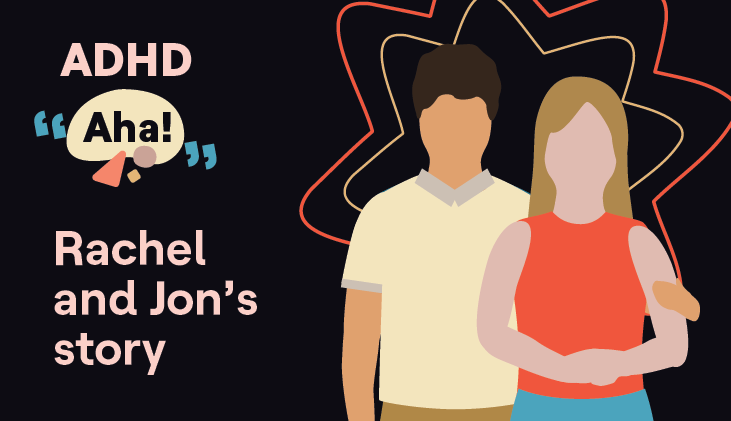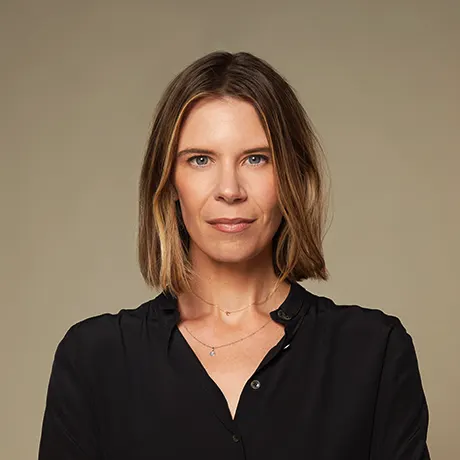Stay in the know
All our latest podcasts delivered right to your inbox.
Jon Gardea has ADHD... and his wife Rachel doesn’t. She helped him spot the signs, though, including his hobby graveyard. Once Jon got diagnosed, it was clear that ADHD had been impacting their marriage over the years. Having an explanation created a positive mindset shift in their relationship, bringing them even closer.
Rachel hosts a YouTube channel called “Post-Mormon Parenting.” In this episode, she and Jon also talk about how leaving the Mormon church contributed to Jon’s ADHD discovery. Listen to this heartfelt and honest discussion to get a behind-the-scenes look at ADHD and marriage.
Related resources
The relationship between ADHD and executive functioning
Episode transcript
Rachel: I'd like really got into TikTok, and it started showing me things about ADHD more and more, and I was like, oh my gosh, oh, wait a second. There's all these symptoms of this, or manifestations of this, that I had no idea before. And oh, my goodness, this is Jon. Like this describes him so well. Specifically, whoever was watching was talking about their hobbies and how they would start different hobbies and then they would get super into them, only to enjoy it for a super-short period of time. And then it was done.
Laura: From the Understood Podcast Network, this is "ADHD Aha!," a podcast where people share the moment when it finally clicked that they or someone they know has ADHD. My name is Laura Key. I'm the editorial director here at Understood. And as someone who's had my own ADHD "aha" moment, I'll be your host.
I'm here today with Jon and Rachel Gardea. Jon has ADHD. Rachel does not. Jon and Rachel, welcome to the show. Thank you so much for being here.
Rachel: Thank you. Yeah, we're really happy to be here.
Laura: First, I need to say this is my first time on this show interviewing two people at the same time. So this could be interesting and certainly my first time in life interviewing a married couple. So that could also be interesting. Could you introduce yourselves just so people who are listening know whom they're listening to?
Rachel: Jon hit my hand to tell me to go first. So I'm Rachel, I'm the non-ADHD partner in this relationship. I grew up in Connecticut, so yay, East Coast. But now we live out in Arizona. We met in college and we've been married for about 14 years now and we have three kids, ages 9, 7, and 5. And I'm a stay-at-home mom. And in my spare time I like to do some YouTube videos and fun stuff like that. Whenever I have a little bit of spare time, which — I know you have little kids too. And so you know how it —
Jon: There is no spare time.
Laura: There's no spare time. So, Jon, what about you?
Jon: I actually grew up in Phoenix, and we both grew up Mormon. I was born into a very conservative religious family and ended up going through all of the regular steps of being in the Mormon Church. As a boy, young man, went on the mission when I was 19 to 21. I went to Taiwan. So at one point I did speak Chinese fluently. I'm very rusty now. But we both ended up at BYU, Brigham Young University in Utah, when we were in our 20s. And we met there through a mutual friend and we were both singers, so we were in choir together and ended up sort of hitting it off there. And then we ended up getting married and I'm a nurse. I have been a nurse for 13 years now, so I really enjoy doing that.
Laura: I was raised by a nurse. So tons of respect to you being a nurse.
Jon: My mom's a nurse too.
Laura: Yay, nurses. Yes. So great. Never let me get off school for being sick.
Jon: Show me the thermometer.
Laura: Show me the proof. Right, right. .
Jon: You had to have a fever of 101 and above if you were not going to go to school.
Laura: Exactly.
Jon: I learned how to fiddle with the mercury thermometer.
Laura: No way.
Jon: I would either put it against a light bulb to make it go up. I learned how to shake it just right so I get right into the sweet zone where I wouldn't be suspicious and have to go to the doctor, but I could skip school.
Laura: I may ask you to sing for me, by the way, at some point, and if you spontaneously erupt into song, I'm OK with that too.
Jon: OK. OK.
Laura: So, Jon, when were you diagnosed with ADHD?
Jon: All of last year.
Laura: What was your "aha" moment? What led you to seek out an evaluation for ADHD?
Jon: It was spurred on by her research, so, I don't know exactly what she found, but do you want to talk first?
Rachel: Sure, yes. So our current 9-year-old, he was maybe like 7 or 8 at the time. And I was messaging his pediatrician saying, "I think he might have ADHD, maybe, possibly? It's not really affecting his grades or anything, but it sure makes life a little bit difficult at home. Can we get him evaluated?" And his pediatrician was like, well, that doesn't really something is that big of a deal. He seems fine, like contact me in about a year, you know, and we'll discuss if it's affecting his grades or whatever. I kind of left it alone, but in the back of my mind, I'm still looking things up and thinking like, wow, he's classic — whatever I know about ADHD. He's got hyperactivity and he has attention deficit. So I just kept doing more and more and trying to learn more and more about it. And I think it was when I was watching TikTok. I'd really gotten into TikTok.
You know how they say that TikTok just knows you and it shows you things that you didn't even know about yourself but TikTok knew at first. It's a little bit eerie, but it started showing me things about ADHD more and more. And I was like, oh my gosh, oh, wait a second. There's all these symptoms of this, or manifestations of this, that I had no idea before. And oh, my goodness, this is Jon. Like this describes him so well. Specifically for whoever is watching was talking about their hobbies and how they would start different hobbies and then they would get super into them. Like really, really into them. They would research the heck out of it and spend hours and hours and buy all the accoutrements and all this stuff, only to enjoy it for a super-short period of time. And then it was done. We're done. New hobby. Next! And before I realized that that was potentially at least an ADHD thing, I thought, man, is Jon bipolar? I like what exactly is going on?
Jon: He goes through these manic phases and is just obsessed about something.
Rachel: Yeah. And then he'll be depressed. And this all happened, too, during a time when there was a lot of, I would say like mental turmoil, a lot of like anguish, a lot of self-reflection that both of us were doing. Because, as Jon said, we were raised in the Mormon Church and we had both recently stopped believing in that. And so both of us had kind of a crisis of meaning in our lives. So Jon in particular was having a really hard time with his mental health during this time. And so he was seeing psychiatrists and therapists. And I had brought up to him, hey, maybe let's talk to your psychiatrist and see if you have ADHD.
Laura: How do you react to that, Jon?
Jon: So I was like, OK, that's basically, uh, maybe, I don't know. Anything's possible at this point. When she had mentioned this and then showed me — I think she showed me a TikTok. There was a guy who was talking about his obsessions. He's like, I have a new hobby. I'm going to do my hobby. I've bought all the things for my hobby. And then he goes into his room and it's just complete, like podcasting, audio recording setup, and it's like a suspended mike and boom and everything with the pop filter and everything. And he's like, nah, ah, now I'm done with my hobby. I have no more interest in my hobby. And, and I was like, oh my God, that's totally me.
Like that summer, I had just been like, I am going to learn violin. And I bought a new violin because there was none to rent. And I started going to lessons at this really nice conservatory.
Rachel: 'Cause you can't do anything halfway, partially, or mediocre. Like we have to get the best stuff. We had to do like the best lesson.
Jon: That's right.
Laura: If you're going to start a hobby, start it right.
Jon: That's right. Exactly.
Laura: Don't finish it. But you're going to start it right. Yeah.
Jon: Start it right. Well, I don't have any intentions of quitting. I've got, like, dreams of being able to play, like, Mendelssohn and other things in my head, you know? I'm going to be able to play this amazing violin piece. And I'm like watching videos of Hilary Hahn and other violinists, and I'm like, so inspired. So I'm going to my lessons. And I suck, of course. And I don't apply myself, of course. And I'm all distracted and whatnot. And it lasts for four and a half, five months, which is about, I would say, how long most of them —
Rachel: That's the longest you've ever spent on a hobby.
Jon: — most of them last. And I think she mentioned it maybe like two months after I had stopped going to lessons or maybe a month after. And I was like, oh. And I started considering all the different hobbies that I've done. Like I've done guitar, I've done ukulele, I've done violin, I've done necklace making and beadwork.
Laura: Did you ever consider hip-hop dancing? Because I had a moment in time where I was like, I'm going to become a hip-hop — the people who are listening can't see me, but I'm like gangly and very uncoordinated, so that would be really bad. But I had a dream. I had a dream. I will be a hip-hop dancer.
Jon: I was never that ambitious. I am impressed.
Laura: I didn't make it past even just like the thinking about it. But I was very close, yeah.
Jon: Yeah. No, I definitely understand. Like, I started obsessing about K-Pop, and this has been probably my longest obsession.
Rachel: Oh, that's true.
Jon: Because it's become like part of my life now.
Laura: So what was it that was drawing you into all these hobbies? What did it feel like in your body? Was it like impulsiveness or just regular interest levels and then getting distracted? What was it like?
Jon: So when I start something new and I'm really interested in it, it feels like really energizing. And I get really excited about it and I look forward to doing that thing, which I would say for a lot of what I do day to day, I don't feel that. Especially with kids, like life becomes so swearword — I'm not going to say it — monotonous. I don't know what kind of podcast this is, but.
Laura: We usually bleep the f word. We allow other things. So yeah.
Jon: OK.
Jon: So damn monotonous.
Laura: There you go.
Jon: A lot of the time. And it's just really a struggle sometimes to find joy moment to moment I feel, just because of all of the challenges that parenting presents. Let alone having to go to work and manage all of the stressors there, and then come home and then face the onslaught of demands at home, right? We all understand this as parents. This is all normal parenting stuff that we don't know before we go in to parenting very well.
Laura: Or else there would be no parents?
Jon: I know, right? Yes.
Rachel: If only we had been able to make a very educated, informed decision.
Jon: There would be so many fewer children in the world.
Rachel: We kid, we kid. Obviously, we love our kids. We can't imagine life without them. So let's not be misunderstood.
Jon: Well I can imagine life without them.
Rachel: Oh stop.
Jon: Anyway, the point is that it makes me feel, I'd say, more energized than I normally feel. I find it engrossing and absorbing while the newness lasts. And then once the monotony sets in, then I lose focus. And I have a really hard time getting it back.
Laura: This sounds like it's expensive.
Jon: It can be. It depends on what the hobby is. Yeah, we're not that well-to-do. So in comparative terms, I would say it's been very expensive for us.
Laura: Rachel, what's your experience been with the hobbies and everything that Jon was just talking about?
Rachel: Lots of mixed feelings. Because on the one hand it is quite expensive and I'm very type A, I'm very organized, like, here's the budget. We're going to go down to the dollar and we're going to make sure that everything is lined up, and we're going to snowball our debt, that kind of thing. That's really my specialty. And it also helps me feel safe. Having those things all set in order and all organized makes me feel really safe. And so there's something thrilling about when Jon gets a new hobby, because on the one hand, I don't feel very safe because he's spending lots of money that we don't really have. And that stresses me out. And on the other hand, he gets really energized and he lights up and he becomes what I would say is like, oh, that's the real you. That's the real Jon, not the one that comes home from work and is like depressed and not feeling his best and is tired a lot. This kind of thing, when he gets hyperfocused on something, like he comes alive, he's happy. He's more present with me and the kids. And I can see that it really does a lot for him. And so our quality of life improves at the same time. So definitely mixed feelings. And this has been kind of hard for me to.
Jon: I've never heard you say that before.
Laura: You've never heard her say what before, Jon?
Jon: I've never heard her give me feedback like it's actually a good thing that you're doing this. I've never heard that side of things before. Usually it's like, oh my God, what are you doing with our finances and that sort of thing.
Rachel: That's true. I think it's easier for me to pick on those things that like, I'm not feeling safe about this and not as easy to share my more positive feelings with you.
Laura: So, and I say this with a lot of empathy as someone with ADHD whose symptoms can cause friction in my own relationship, which is a very healthy relationship, but it can be hard. Did any of that or other ADHD symptoms, has that led to any fighting or friction in your relationship? And how have you dealt with that?
Rachel: Right from the beginning, I feel like Jon and I have always had really, really excellent communication. That's definitely been one of the strengths. And so we have not had a lot of fights about ADHD-related things. Maybe it's harder for him to tidy up, you know, it's easier for me. So there's not exactly this shared chores around the house like I still do, you know, the lion's share of all the stuff around the house and the childcare and the all the mundane tasks.
Jon: I think my ADHD causes a burden on her because — like for example, and I think a lot of people who listen to this podcast will really resonate with — looking at a room that needs to be cleaned and just being totally paralyzed at where to start. And you're like, I have no idea how this is going to get done. And if it does get done, it takes me all day, 10 hours, maybe two days to get a room clean and it's finally clean. And then the rest of the house is still a disaster. And she can clean the same room in like 30 minutes to an hour, boom boom boom, get it done. And I am always amazed at how she can just do that.
Laura: You don't have to deal with those executive functioning challenges, Rachel, but there's a different burden that you take on. So, yeah, I hear you both.
Jon: I feel bad because I know that it exacts price on her and her emotional well-being. Because I'm putting more on her, because I can't do as much as — that's how I feel, at least for some things.
Rachel: The thing that makes the biggest difference is that Jon says stuff like that to me, and he's really, really good about saying stuff like that to me. Like from the beginning, from when we first started seeing each other, everybody wants to be seen and heard. It would be nice if things felt a little more fair. You know, maybe I did half the work, he did half the work. That would be nice. But what's even more important than that is that the work that I do gets recognized and I get seen, and that's understood. And so that's been super helpful for me, because I know it's so easy for a lot of the non-ADHD partners to grow resentful of having to overcompensate and shoulder more of the burden at home.
Jon: Shoulder the majority of the responsibilities.
Rachel: Exactly. It's been super, super helpful for us that Jon is always so forthcoming to me, like, wow, you did so much here. I don't know how you did that. And I think you're amazing. And not just pay lip service, but really, really mean it.
Laura: That's beautiful that you do that, Jon, and that, Rachel, you notice that he does that and it does make such a huge difference.
Jon: It's all lies, Rachel.
Rachel: He's just getting out of the dishes.
Laura: Yeah, he's been faking all the time. He just doesn't want to do the dishes.
Rachel: Well, that's been helpful, too, because we have such good communication that I've always understood, like, he's not just being lazy, he's not trying to get out of something. He's not trying to shoulder more responsibility on me because I'm the woman in the relationship or whatever. I've always known that it is a struggle for him. Before we even had a diagnosis, I understood that that our brains just work differently.
Laura: The gender dynamics are so interesting too, you know, because as a woman with ADHD, I struggle with that same feeling that you have, Jon, when you look at something, and you're like, how is this going to happen? And then I just get down and I — how am I going to clean this all up? And then I just go and kind of escape.
Jon: Yeah. If you think about our gender stereotypes that we have in the United States, at least in the Western culture and other cultures over the world, too, women are expected generally to do more of the domestic things. But if you have ADHD and you're a woman and you're in that position, that would be so horrible. I can't even imagine that.
Laura: Rachel, now I feel seen the way he makes you feel seen. Thank you, Jon. No, seriously. No, but it does. It can make it really hard. And then I put so much extra pressure on myself. And my husband never lectures me at all about it. And we share all of the housework and everything. But yeah, I just, I get that really anxious feeling like I'm supposed to — this is my job, even though my brain knows better than that.
So Rachel, you were doing some researching related to some things that your son was experiencing. You discovered some information on TikTok. You shared it with Jon about potential ADHD symptoms. What happened then?
Jon: So I was seeing a psychiatrist. She's really cool, very open to things. And Rachel's like, why haven't you ever talked to her about ADHD before? Why hasn't she ever mentioned it? And I was like, I don't know. There's just things been going on. But I was talking with her about what Rachel had brought up, and I said, after looking at it, maybe it's possible that I might have ADHD. What do you think? And she's just like, you know what, I never even thought about that before, and you fit so much of the criteria. And then she asked me a couple of like screening questions just in the session and she's like, yeah, that really sounds accurate. You want to take a test? And I was in like 99.6 percentile of distraction. And yeah, and the impulsivity was not that bad, but the distraction was like super high. She was very impressed with that number. Like you, definitely, you definitely have something going.
Rachel: You passed the test!
Laura: You got an ADHD A-plus. Yeah. Wow. So you got diagnosed. Did that change things in your relationship? And if so, how?
Jon: That was a big "aha" moment for me when she said you're more distractible than 99.6% of the rest of the population that has taken this test. And then I thought of all of these things, like when I would forget my things at school and in high school and in college, and at work when I'd forget things, and struggling to just pay attention in meetings. Like all of this started to, it was like Tetris, you know, all the blocks started falling into place and everything started to make sense about this constellation of behaviors that I have that I had just figured where idiosyncratic behaviors in my life.
Laura: What about you, Rachel?
Rachel: It was so validating. First of all, it made me feel like I did it! I solved a problem! I win! A point for me! That really gets my dopamine going. So that was really helpful. And all those years that I had kind of given him a free pass for a lot of things, I could hear critical voices in my head saying, don't give him a free pass on that. That's not OK. You're letting things slide and you're being too permissive, and maybe you should really put your foot down and say, no, I need you to pick up the slack and be this way. Maybe I really am just like being a doormat. And maybe that's not good. I don't know.
Having the ADHD diagnosis was super validating to me because I could say no, I did the right thing. I understood from the get-go that there was something different about the way that our brains work and the way that we process things and the way that we attack projects and mundane activities. There's just something fundamentally different, and he's not trying to take advantage of me or anything. I made the right call and here it is for sure. He has this ADHD diagnosis.
Laura: That's such a powerful mindset shift.
Jon: Rachel is already one of the most, if not the most understanding and patient person that I know, thank goodness. And it kind of validates also the challenges that she's faced over the years. Like I've been living with someone who has this high-intensity condition, and she's been dealing with the repercussions of that condition with a lot of grace and understanding and patience. And I was just very grateful for her over all the years that she had been doing that without knowing that I had the diagnosis that I now had.
Rachel: Thank you. You're getting me all choked up.
Laura: If it's all right, I'd love to talk a little bit about leaving the church.
Jon: Oh, yeah. Let's do it.
Laura: I've noticed in a few of these interviews that I've done that people, once they go through one big change — like, for me, it was getting my anxiety under control. For another guest, it was getting sober for the first time. Once they get one thing under control, then all of a sudden they're like, OK, that's good — ish. There's still something else going on. And that's when the ADHD symptoms, like, you kind of open up to them a little bit. I'm curious if that was your experience with leaving the church and then discovering the ADHD.
Jon: So I had a cousin who left, probably in 2012. And that really started me thinking about things critically. And then fast-forward to 2018–19. That's when I really started getting the things that I had kind of put to the side and really started examining them. And once you start examining something, you get that critical thinking part of your brain going. And once you work through something like that, you can't just shut that off. And so you're reexamining so many other things, like, why are my behaviors like this? Why do I have a relationship like this with this person? And, you know, if there's something going on that's an imbalance, you want to find out what that is. And you can put those new skills that you have to use.
So I think that might be one reason why people start addressing multiple things. Or multiple things start coming up as they're going through therapy or as they're going through this process of self-discovery, because they haven't done that before in a really significant way.
Laura: That makes a lot of sense. Rachel, what about you? What do you think about that? And we should mention the name of your YouTube channel is Post-Mormon Parenting.
Rachel: Mm-hmm, that's right.
Laura: It's great. You're so good at what you do.
Rachel: Thank you.
Laura: Does the Mormon Church have a stance on ADHD? Like, what would the conversation around ADHD have been if you were still part of the church?
Rachel: In the far past — I'm going to say decades and decades ago, like before we were really coming of age — there were church leaders who had things to say about different kinds of disabilities or people who thought differently. For us, not really. There wasn't a whole lot of shame around ADHD specifically. But there was this very, very strong mentality of you pull yourself up by your bootstraps. Here are the expectations that we have for you. You should have super-high expectations for yourself, no excuses whatsoever.
So if you're not meeting the goals, you're not making sure you're reading Scripture every day and being into this, there's a lot of things to perform, lots of rules to keep. And on top of that, you have to pay a compulsory 10% of your income in tithing, which was extremely hard for us. We would always be happy to pay it. Like what an honor to pay even when we literally didn't have enough money to cover our own expenses. You were supposed to pay your tithing first and then everything else after that. And I think for people who are very type A, like me, who are very, I want to say neurotypical, I hope that's OK to say?
Laura: Oh, absolutely.
Rachel: OK. For someone like me who's very type A, very organized, very like, here's my budget and I'm going to stick to it and I'm going to eat beans and rice for a month so that I can save up for this one thing. Like I can do that. And I did. And it really wasn't that difficult. And so it's easy for people like me in the church to say, why is it so hard for you to pay tithing? Like, why do you have credit card debt? Why do you have any kind of debt? Like, there's no excuse for that.
Jon: Why do you have depression? Because why can't you just make yourself be happy? Just get up and go help someone. Just get up and go do something.
Rachel: Yeah. Lose yourself in service.
Jon: Instead of laying in bed and feeling sorry for yourself. There's a lot of people still in the church who feel like mental illness — it's not a thing. It's something that the world has told us to, I don't know, deceive us, right?
Rachel: Yeah.
Jon: Because you have the capacities. God has given you all the capacity that you need to do what you have to do in this world. And what you have to do is this and this and this and this and the Scriptures and what the prophets say. And there's a lot of people who feel like you don't need medication, you don't need therapy. The church is, in general, coming away from that. But there are people leading the church who were born in the 1920s.
Rachel: There's still the old guard leading the church. There's still the old guard as members of the church who still have what I would say are very outdated views. Obviously, there's exceptions. You're going to find congregations that are more progressive.
Jon: Yeah, there's a lot of forward-looking people in the church.
Jon: But overall, it's not a very healthy environment for people who have ADHD or anything else that's, like, just not the norm.
Laura: People struggling with mental health. People who learn and think differently.
Jon: Even though the norm is mental illness for a lot of people. No?
Laura: Yeah.
Jon: There are so many people who have issues and there's like no allowance for that in the church. Anyway.
Laura: You know, it's certainly not exclusive to the Mormon Church, but I hear so many people on this show and in our community and the Understood community talking about: I'm just lazy, or people are saying my child is just lazy. This word, like you should.
Jon: We have so many rigid cultural expectations.
Laura: Right? You should be able to do X, Y, and Z.
Rachel: Well, this is how I used to parent when my kids were little-little, especially my oldest. There's no excuses. You make good decisions. You do what you're told. You get your room cleaned, you know? Very rigid. And I gave them a hefty dose of love and like, oh, I love you so much. And you understand why you got a time-out. Let's talk it through and let's validate your emotions and all the things. But still, I had these very rigid expectations. And over time I could see how that was hurting my son. And he was developing an anxiety disorder because of how I was treating him and both of us too. But I was that I am and have always been the main caretaker.
Jon: I'm still a lot that way. It's really, really difficult to pray myself out of the programing and the way that I was raised.
Laura: Yeah, it must be a lot to unpack. And I know that ADHD isn't necessarily at the center of your story. Your story is multifaceted and beautiful, but how does being part of that kind of this new club, this ADHD club, like, how does that fill your cup at all in terms of understanding yourself and starting from scratch?
Jon: My life and the way I behave makes more sense to me than it did before, and that is kind of grounding in itself, though there are so many things that we're still trying to figure out, and it's hard to finally come away from that previous indoctrination and programing to another space where you have to figure things out all yourself. It's comforting to know that this thing, ADHD, that I actually kind of understand it and it makes a lot more sense.
Laura: Rachel, what do you love about Jon's ADHD brain?
Rachel: Even before we got his diagnosis, even before we suspected ADHD, I would always tell people how much I appreciated the relationship that he and I have. And I'd say, you know, I'm the one that if we're going somewhere, I'm going to make sure we got all the snacks and the kids had potty breaks. We've got the diaper bag and it's fully stocked and we know where we're going and we're going to get there on time. And Jon's the one who's going to make sure we have fun.
I remember this one time we were helping his mom plant a garden — before we had kids. And she wanted us to just get these bags of dirt and pour them into these garden boxes that we'd helped her make. And I was like, all right, we got this list of all these errands that we need to do, like we're going to be so productive. And Jon puts the bags down on the dirt. He's like, I'll be right back. I was like, what is going on? He sets up the bags in a circle, he grabs a Sharpie, and he draws a face on each one. And they're like these angry, mean-looking faces. And then he goes into the closet and he grabs his dad's —
Jon: My dad's a martial artist. And he has like, tons of weapons, like swords and knives and stabs and everything.
Rachel: So he takes his pick, he grabs this katana, and he's like, go, go, go. Set up the camera, set up the camera. So I'm like, what is going on? I'm recording this video? And he pretends that he's in the middle of this fight and he's like living out his, you know, childhood dream, I'm sure, stabbing these bags of dirt with his katana.
Jon: Because they had to be open. This is my creative way of opening, right? That was the whole plan.
Rachel: So on the inside, I was like, but we're losing time. We're not going to do all the things. We're not going to be as productive. But at the same time, like what a memorable Saturday morning. All these years later, we still remember it. If we had done my plan, we would not remember that Saturday morning whatsoever. So I help us get the things done that we need to get done, and he helps us have fun while we're doing it.
Laura: I love that. Thank you both so much for being here. It's been so much fun to talk with you. Your story is so interesting. And I'm just grateful to have spent this time with you.
Rachel: Thank you. Thank you so much for having us on. What an honor to be here.
Jon: Thank you, thanks for having us.
Laura: You've been listening to "ADHD Aha!" from the Understood Podcast Network. If you want to share your own "aha" moment, email us at ADHDaha@understood.org. I'd love to hear from you. If you want to learn more about the topics we covered today, check out the show notes for this episode. We include more resources as well as links to anything we mentioned in the episode.
Understood is a nonprofit organization dedicated to helping people who learn and think differently discover their potential and thrive. Learn more at understood.org/mission. "ADHD Aha!" is produced by Jessamine Molli. Say hi, Jessamine.
Jessamine: Hi everyone.
Laura: Briana Berry is our production director. Our theme music was written by Justin D. Wright, who also mixes the show. For the Understood Podcast Network, Scott Cocchiere is our creative director, Seth Melnick is our executive producer, and I'm your host, Laura Key. Thanks so much for listening.
Host
Latest episodes
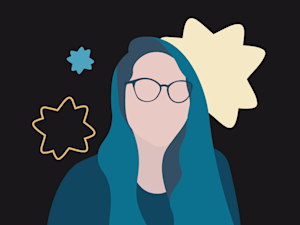
April 16, 2024
ADHD coach Jaye Lin was a gifted kid with undiagnosed ADHD. Now, she’s building communities and helping others cope with ADHD burnout.
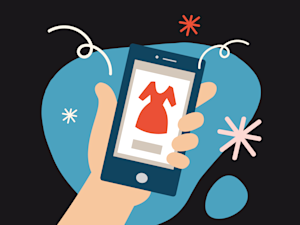
April 2, 2024
Writer Paulette Perhach had money coming in but struggled to keep it in her bank account. An ADHD diagnosis brought her struggles into perspective.
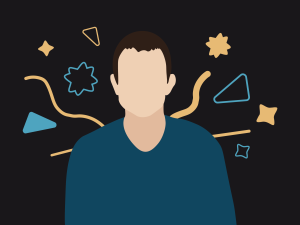
March 19, 2024
Eye to Eye founder David Flink is fighting the “just try harder” myth surrounding ADHD, dyslexia, and other learning and thinking differences.
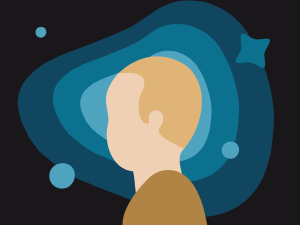
March 5, 2024
Peter Jones used to feel better saying he had a hearing problem rather than considering ADHD. Now, he knows he has ADHD and isn't afraid to say it.

February 20, 2024
Before her ADHD diagnosis, ADHD coach Emily Weinberg thought she was just lazy. But in reality she was stuck in “analysis paralysis.”
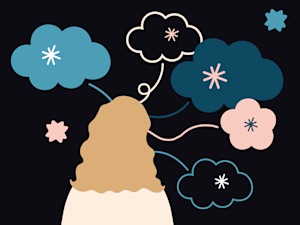
Carol Blumenstein was called an unteachable student. Now, she knows she has ADHD and dyslexia, and supports her five kids who learn differently, too.

January 23, 2024
Executive coach, actor, and former criminal defense attorney Ernest Anemone shares his ADHD story — and why he questions the term “attention deficit.”
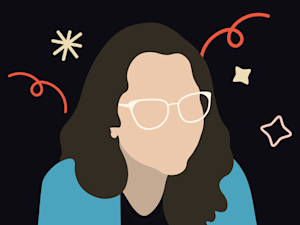
January 9, 2024
ADHD and post-traumatic stress disorder (PTSD) symptoms can look similar. And they can morph into what Hannah calls “a trauma ball of blame.”
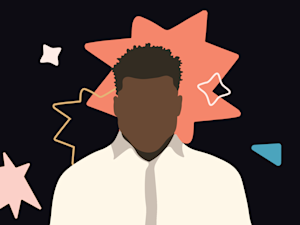
December 26, 2023
Livingston Steele was diagnosed with ADHD about a year into working at Understood.org. His experience and work have given him immense empathy for people with ADHD.
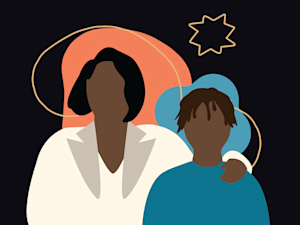
December 12, 2023
Wendy Zanders is a decluttering coach with ADHD. Find out how she got into organizing, and get a few tips for yourself.
